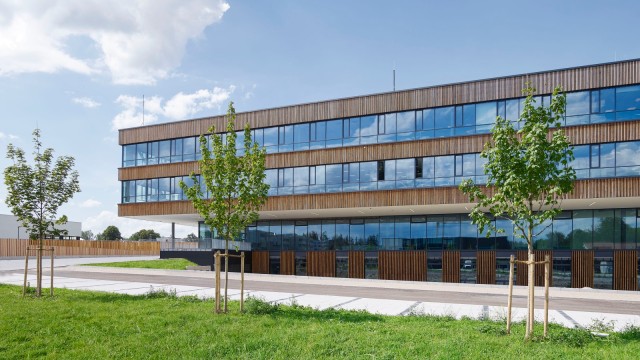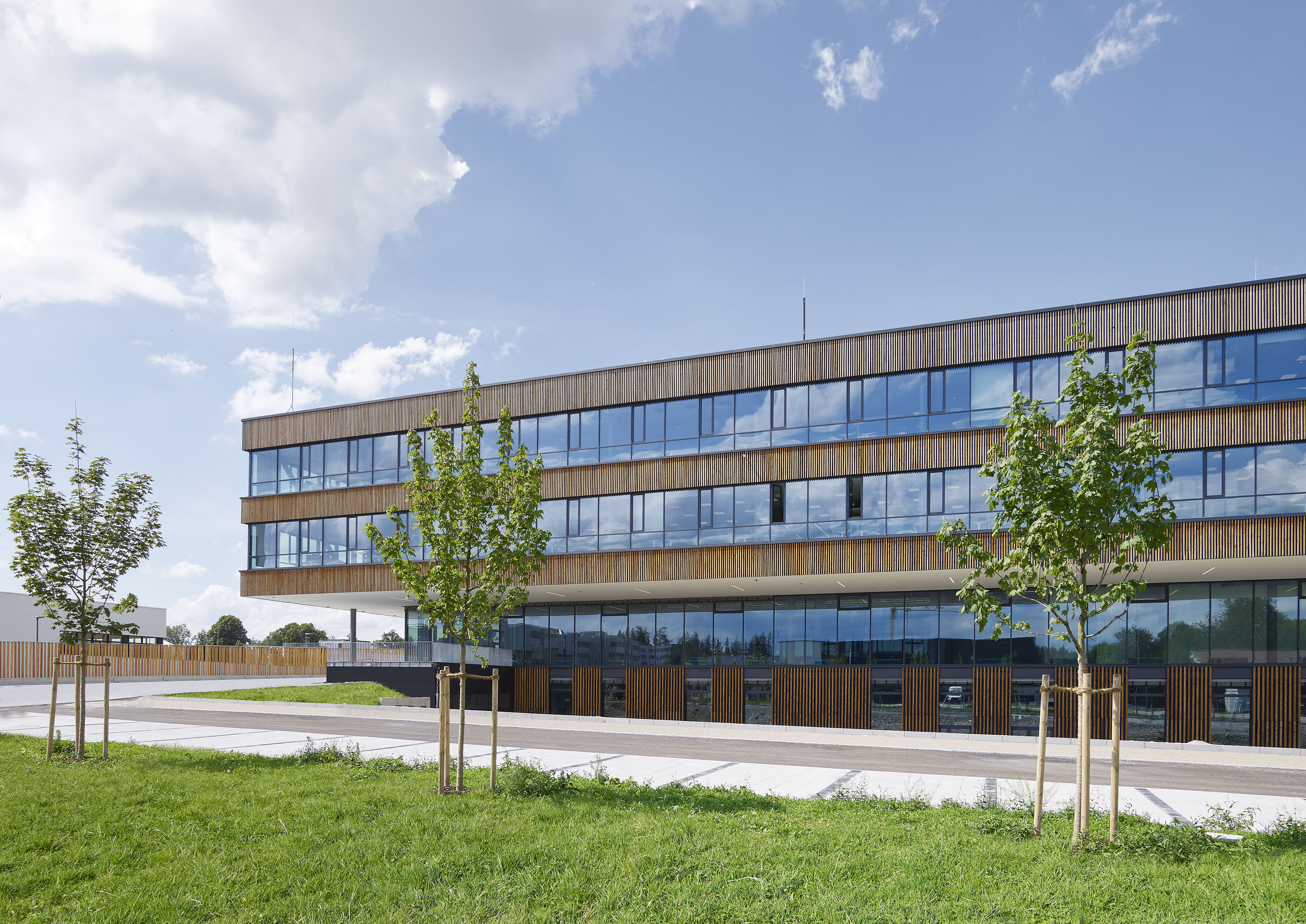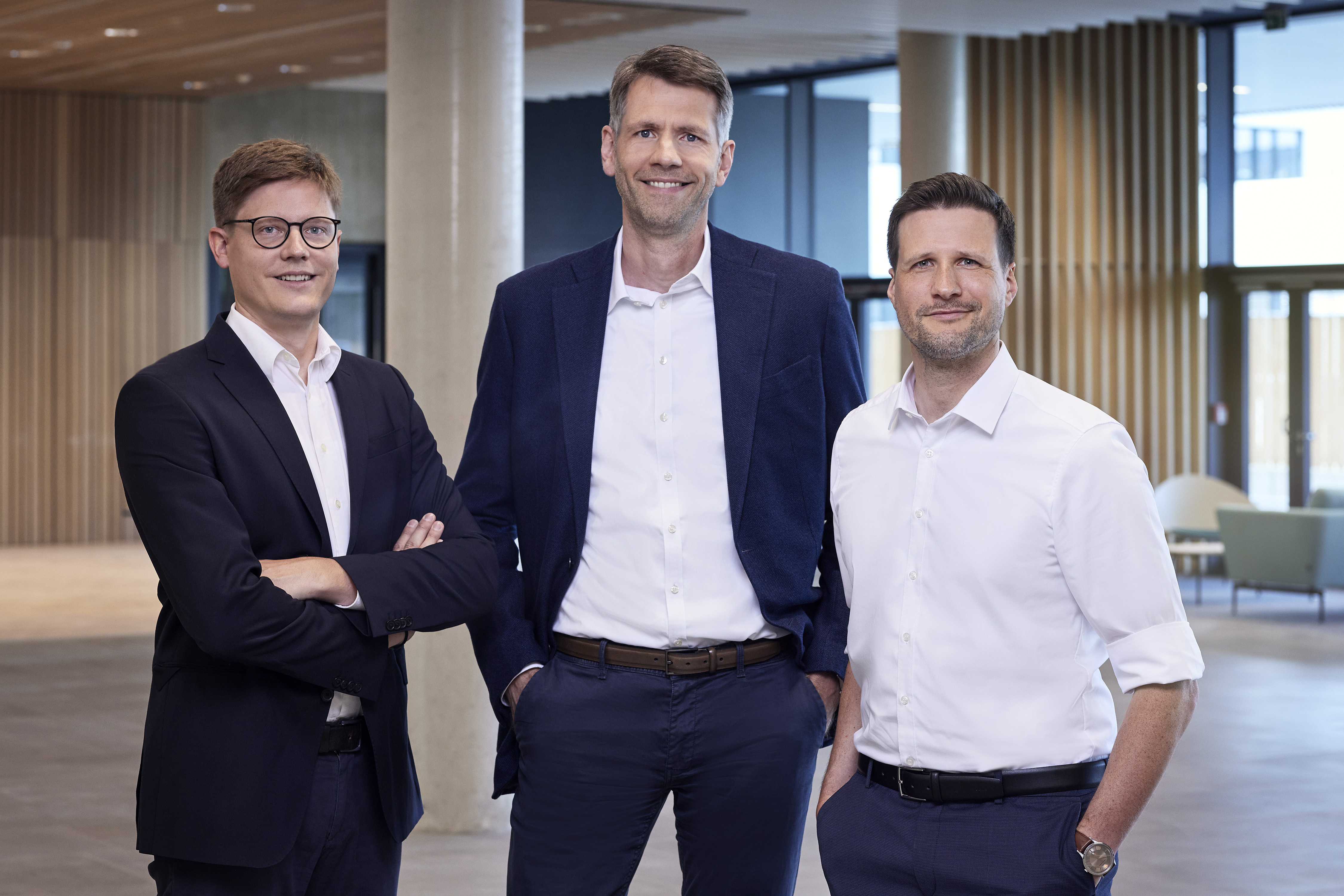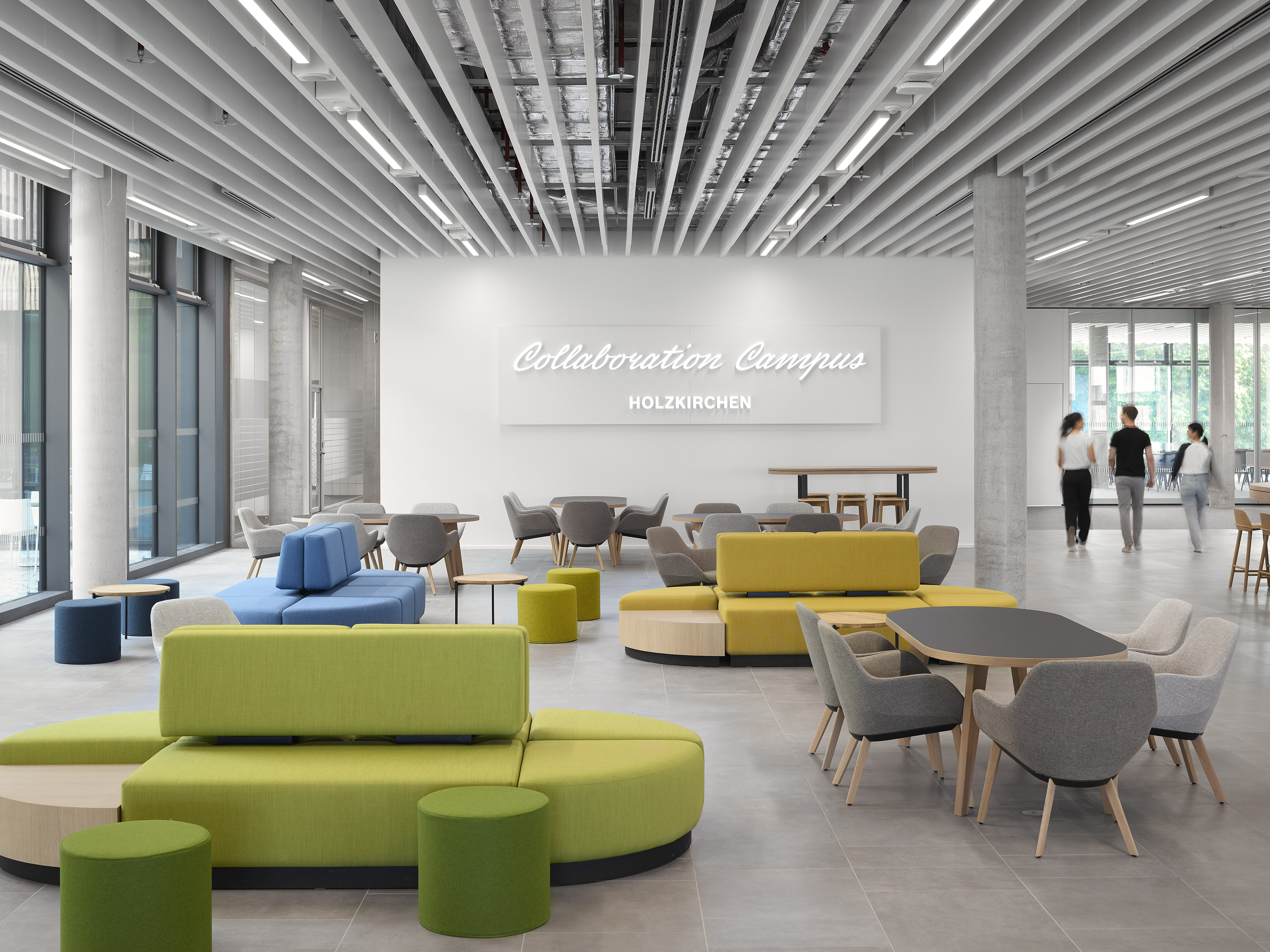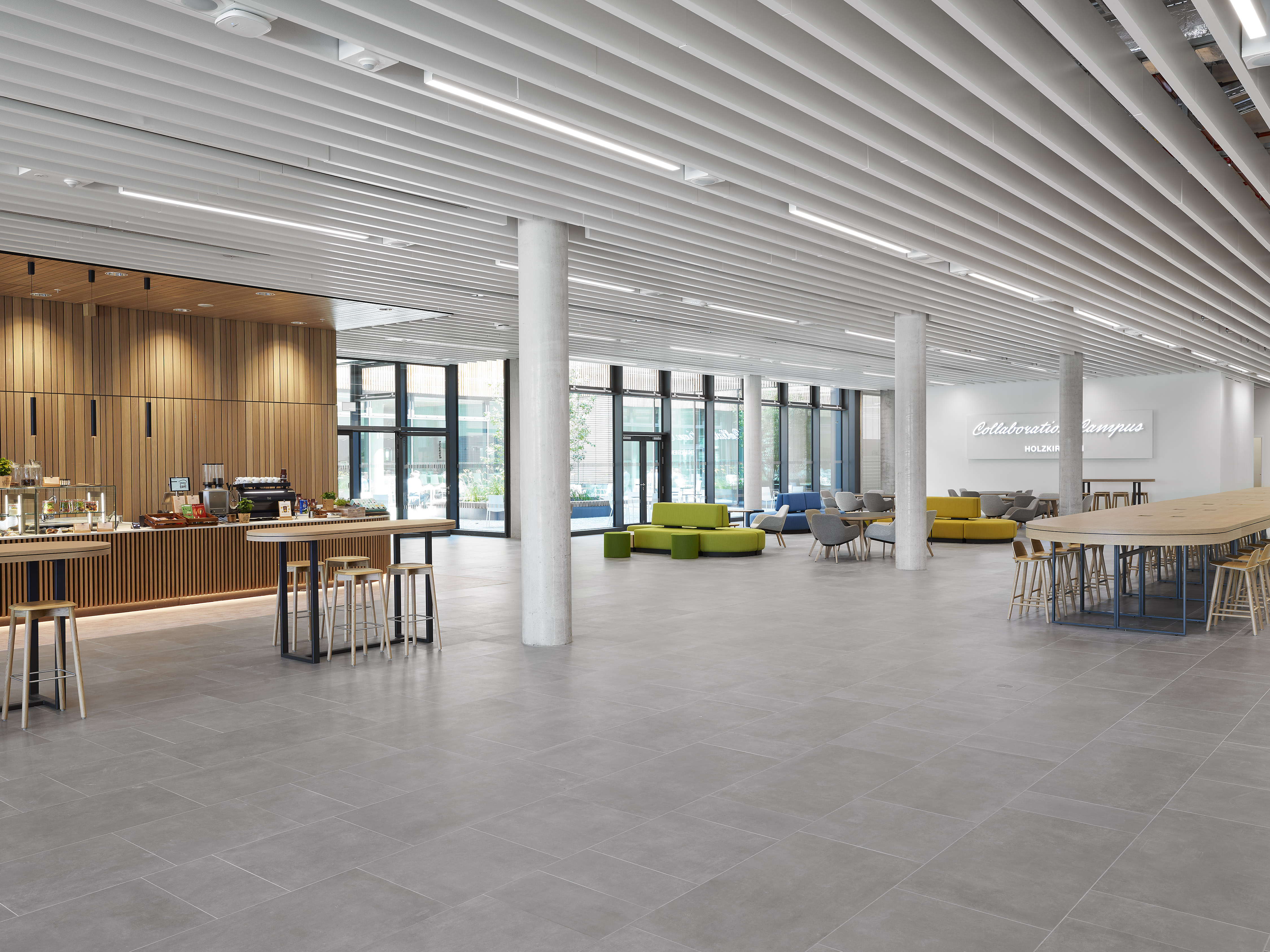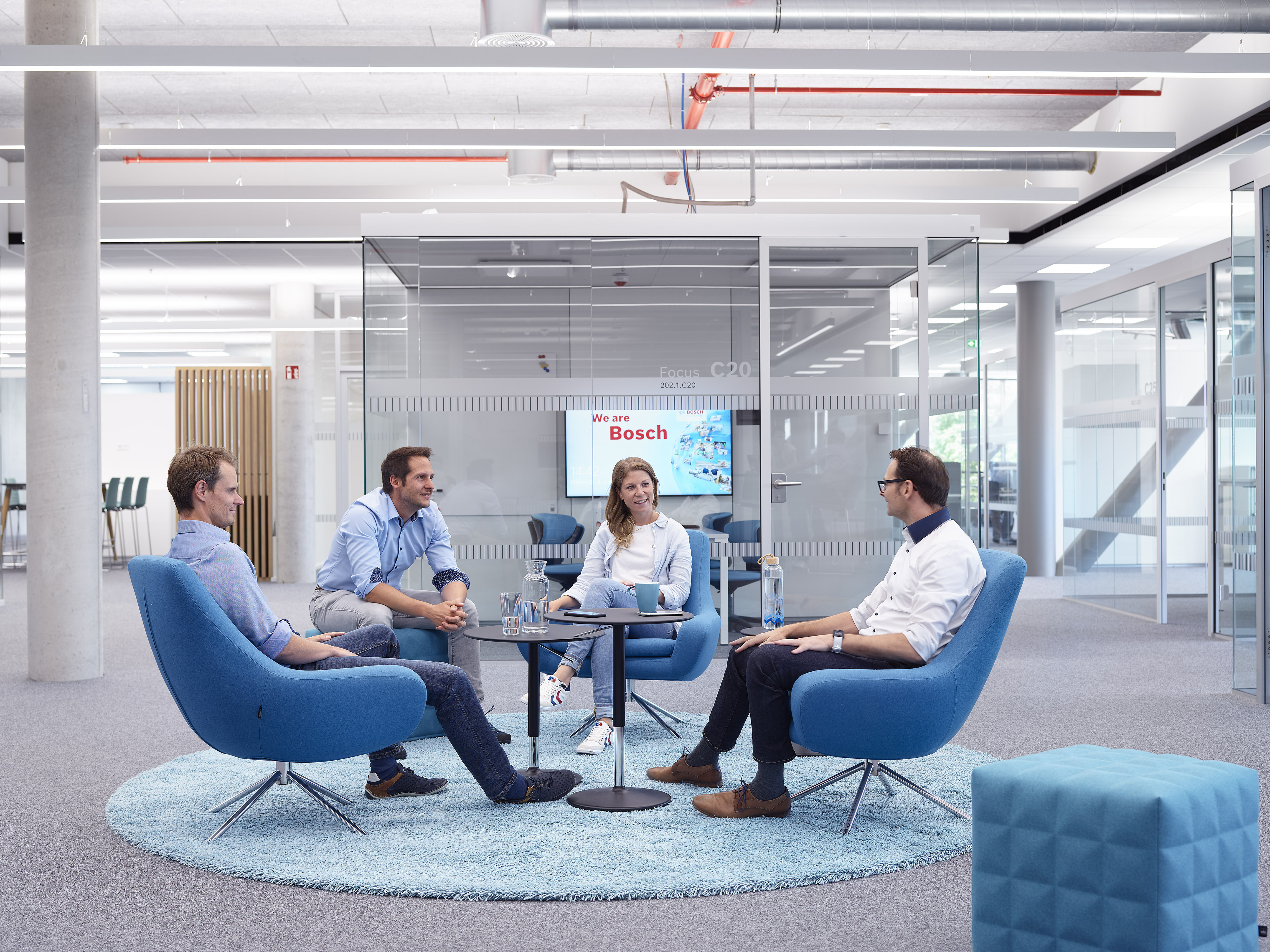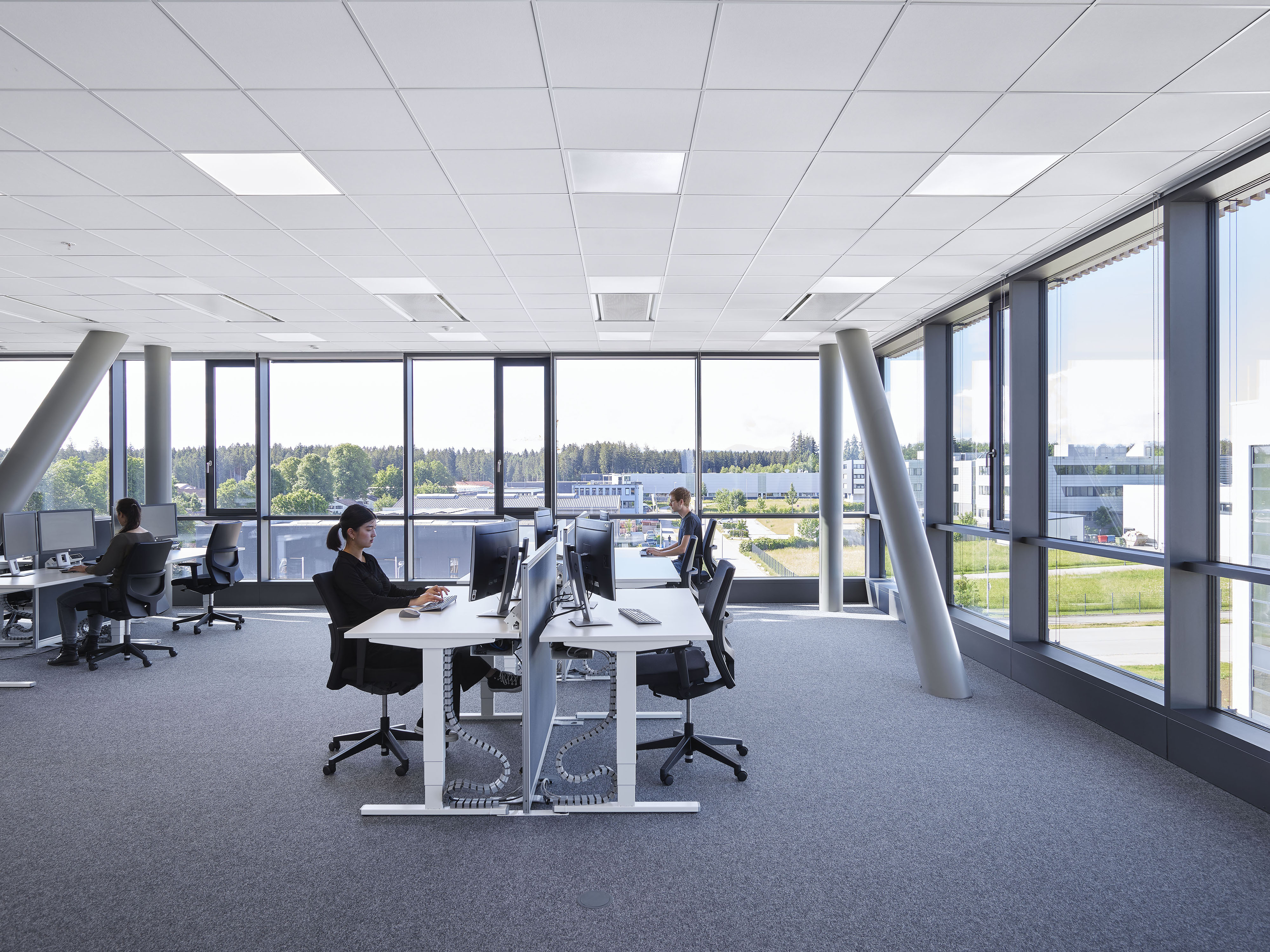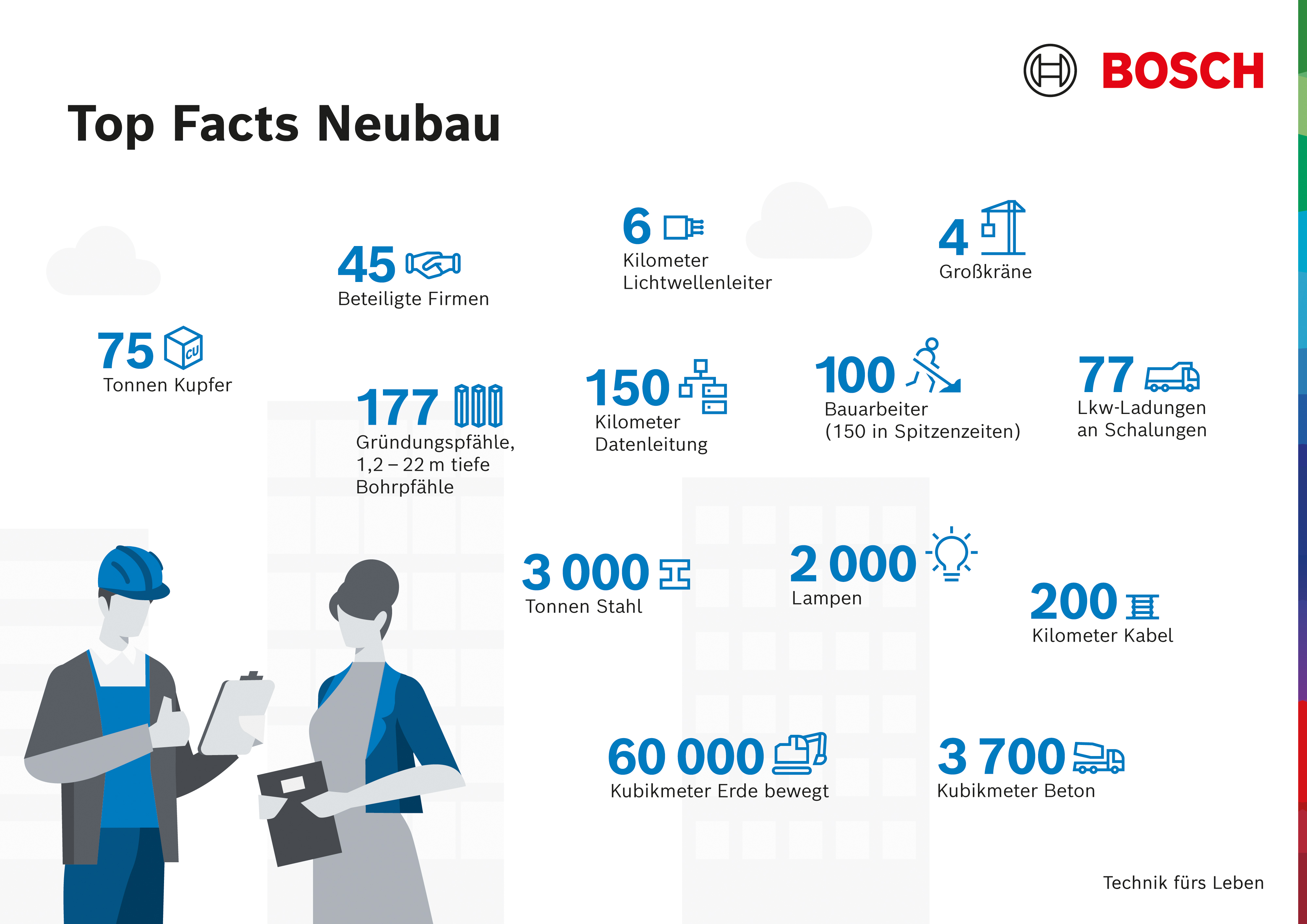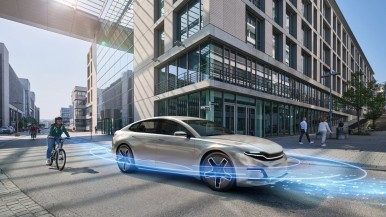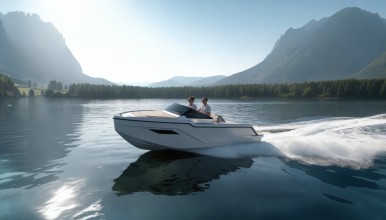Holzkirchen, Germany – Commenced in August 2019, the project to build a new Bosch campus in Holzkirchen, south of Munich, has involved the excavation of 60,000 cubic meters of earth, the installation of 3,000 metric tons of steel, and the mobilization of four huge cranes. At peak times, there were as many as 150 construction workers on site. Representatives from Bosch Engineering and ITK Engineering have now gathered on July 12 to unveil the new development campus. Offering 17,000 square meters of state-of-the-art lab and office space, the three-story building will in the medium term accommodate up to 900 associates. Bosch Engineering and ITK Engineering both offer innovative development services in the automotive, off-highway, rail engineering, and medical systems sectors. The new location’s defining characteristic is its campus atmosphere, providing an ultramodern and creative working environment that offers freedom for innovation and flexibility while promoting close and effective cooperation with external partners. For both companies, it is their second-largest corporate location, topped only by their headquarters in Ruelzheim and Abstatt respectively.
Contact persons for press inquiries:
Cornelia Dürr
phone: +49 7062 911-1986
E-Mail: cornelia.duerr@de.bosch.com
Dr. Uli Kreutzer
phone: +49 152 244 78 220
E-Mail: Ulrich.Kreutzer@itk-engineering.de
Mobility is the largest Bosch Group business sector. It generated sales of 55.8 billion euros in 2024, and thus contributed around 62 percent of total sales. This makes the Bosch Group one of the leading mobility suppliers. Bosch Mobility pursues a vision of mobility that is safe, sustainable, and exciting. For its customers, the outcome is integrated mobility solutions. The business sector’s main areas of activity are electrification, software and services, semiconductors and sensors, vehicle computers, advanced driver assistance systems, systems for vehicle dynamics control, repair-shop concepts, as well as technology and services for the automotive aftermarket and fleets. Bosch is synonymous with important automotive innovations, such as electronic engine management, the ESP anti-skid system, and common-rail diesel technology.
The Bosch Group is a leading global supplier of technology and services. It employs roughly 418,000 associates worldwide (as of December 31, 2024). The company generated sales of 90.3 billion euros in 2024. Its operations are divided into four business sectors: Mobility, Industrial Technology, Consumer Goods, and Energy and Building Technology. With its business activities, the company aims to use technology to help shape universal trends such as automation, electrification, digitalization, connectivity, and an orientation to sustainability. In this context, Bosch’s broad diversification across regions and industries strengthens its innovativeness and robustness. Bosch uses its proven expertise in sensor technology, software, and services to offer customers cross-domain solutions from a single source. It also applies its expertise in connectivity and artificial intelligence in order to develop and manufacture user-friendly, sustainable products. With technology that is “Invented for life,” Bosch wants to help improve quality of life and conserve natural resources. The Bosch Group comprises Robert Bosch GmbH and its roughly 490 subsidiary and regional companies in over 60 countries. Including sales and service partners, Bosch’s global manufacturing, engineering, and sales network covers nearly every country in the world. Bosch’s innovative strength is key to the company’s further development. At 136 locations across the globe, Bosch employs some 87,000 associates in research and development.
Additional information is available online at www.bosch.com, www.bosch-press.com.
